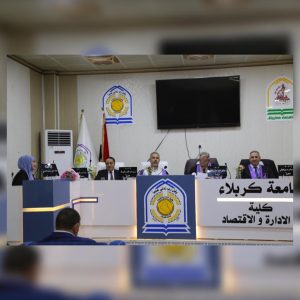The agricultural sector under the agreement on agriculture of the World Trade Organization- the experiences of selected countries with the possibility of benefiting from them in Iraq
A Thesis Submitted By
REYAM ABDEL-AMIR HUSSEIN NAJM AL-RUBAIE
To the Board of the Faculty of Management and Economics – Karbala University, which is part of the requirements of obtaining a master’s degree in economics
SUPERVISED BY
Prof . Dr..ASSISTANT
Ammar Mahmood Hameed Al-Rubaie
ABSTRACT:. The idea of research stems from the issue of agricultural support (export support and local support) and the issue of access to markets, which is one of the most controversial and debated issues within the World Trade Organization, due to the varying effects and repercussions of international agricultural support policies on various countries of the world, especially the net developing countries. For food, which was benefiting from the decline in food prices in the global markets as a result of the large amount of support received by agricultural producers and exporters in developed countries. And that Iraq is like other countries, and although it has not yet joined the World Trade Organization, However, its agricultural sector was affected by the reduction of subsidies since 1995, and this can be seen implicitly by examining the most important developments in the indicators of the Iraqi agricultural trade structure. The problem of the research was the underdevelopment of the agricultural sector and its inability to compete and penetrate international markets, dumping it with imported agricultural commodities and the weakness of the competitive advantage of agricultural commodities (raw materials), as it suffers from a deficit in the agricultural trade balance in Iraq. It enables it to benefit from the exceptions granted to developing countries in this field, and it can benefit from the encouraging horizons that exist in the World Trade Organization to protect and support its agricultural sector, The agricultural sector is greatly affected by the idea of free trade, and the effect varies from one country to another according to the comparative advantage and competitiveness of agricultural commodities.
The most important findings of the research are that the negative effects on Iraq in the event of its accession to the Agricultural Commodities Agreement of the World Trade Organization are greater than the positive ones, especially in the agricultural trade balance index for Iraq, as it suffers from a large deficit from the year (2000-2020). The research was divided into three chapters, each chapter includes three topics, and in the end several conclusions and recommendations for the research were reached.































































